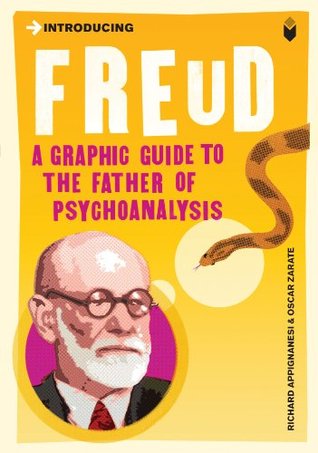More on this book
Community
Kindle Notes & Highlights
by
Oscar Zárate
Read between
November 22 - November 22, 2020
Abreaction is the process of releasing a repressed emotion about a previously forgotten event. The problem of therapy is to get the patient to relive the original traumatic experience which caused the symptom.
1892–96: THE PRESSURE TECHNIQUE For the first time Freud uses a couch. He presses his hand on the patient’s forehead and asks questions.
1896: FREUD COINS THE TERM PSYCHOANALYSIS
The clue to neurotic symptoms is hidden in the patient’s unconscious. The patient doesn’t know what’s repressed in the unconscious. And yet, only the patient can lead the therapist to its discovery and relief. Both the patient and the doctor must search.
“all dreams represent the fulfilment of wishes.” 2. The functioning of dreams provides systematic evidence of the unconscious.
Dreams are only a partial or censored expression of a wish. 2. The latent content of the dream (which contains the unconscious sexual wish) is only allowed to appear if it is disguised as manifest content.
he can “forget” food long enough to consider how to obtain it.
all human thought is partly a conflict, partly a compromise between the preconscious and unconscious systems.
Parapraxis is the official term for the famous ‘Freudian slip.’ It refers to slips of the tongue, pen or memory, which occur in normal life. Errors are symbolic of unconscious attitudes and wishes. There are no errors in the mind!
Everyone is born with a basic sex drive, or instinctual energy, called the LIBIDO (Latin for ‘desire’). The sex drive has both mental and physical features. These features are: 1. an internal organic source of excitation 2. a quantity or pressure of excitation 3. an aim, which is to achieve a sensation of pleasure by removing the pressure 4. an object, which is a thing or person in reality required to satisfy the aim.
Fixation (arrested development) of the libido may occur at a particular childhood stage (oral, anal, Oedipal). 2. Regression (a return) to this early “fixated” level can take place, leading to various forms of adult neuroses.
Freud suggests that rivalry for the females pushed the younger males to kill and eat the old father. Guilt following this original Oedipal crime led to the tribal totemic laws against murder and incest. Repression of this primitive Oedipal crime into the unconscious stands at the beginning of all human culture, religion and art.
The success of therapy depends upon overcoming the forces which work against therapy. How deep do these ‘forces’ go? And what are they? The symptoms expressed by a neurotic can be traced back to repressed, unconscious wishes or impulses.
Freud said, “The neurotic repeats instead of remembering.” He repeats because something unconscious, repressed in the past, puts up a resistance to remembering. But when he repeats by feeling hostile to Freud in the present, this can now be interpreted and turned into actual remembrance.
To mourn the loss of a loved one is normal. But in psychotic depression, the patient’s grief conceals unconscious feelings of hate.
This extreme identification is called INTROJECTION. The lost love object is literally embodied or “devoured” by the ego. The patient regresses to a particular stage of infantile narcissism. This is when the oral stage begins to shade off into the anal stage. During this period, biting and excreting are dominant, and the infant alternates between love and hate.
So this is the secret of repetition-compulsion. It creates retrospective anxiety in the psyche. In other words, the painful memory is relived again and again, until a sufficient defence has been built up “after the event.”
Paradoxically, the death instinct can serve to prolong life.
The super-ego is introjected parental authority. It is the result of a defensive effort which prohibits the expression of Oedipal wishes.
Humans may seek pleasure instinctually. But they will actually spend more effort on avoiding pain. Reality provides far more opportunities for experiencing pain than pleasure. So most people will sacrifice pleasure if civilization, in return, can provide them with less suffering.
ABREACTION: process of releasing repressed emotion by reliving in imagination the original experience.


